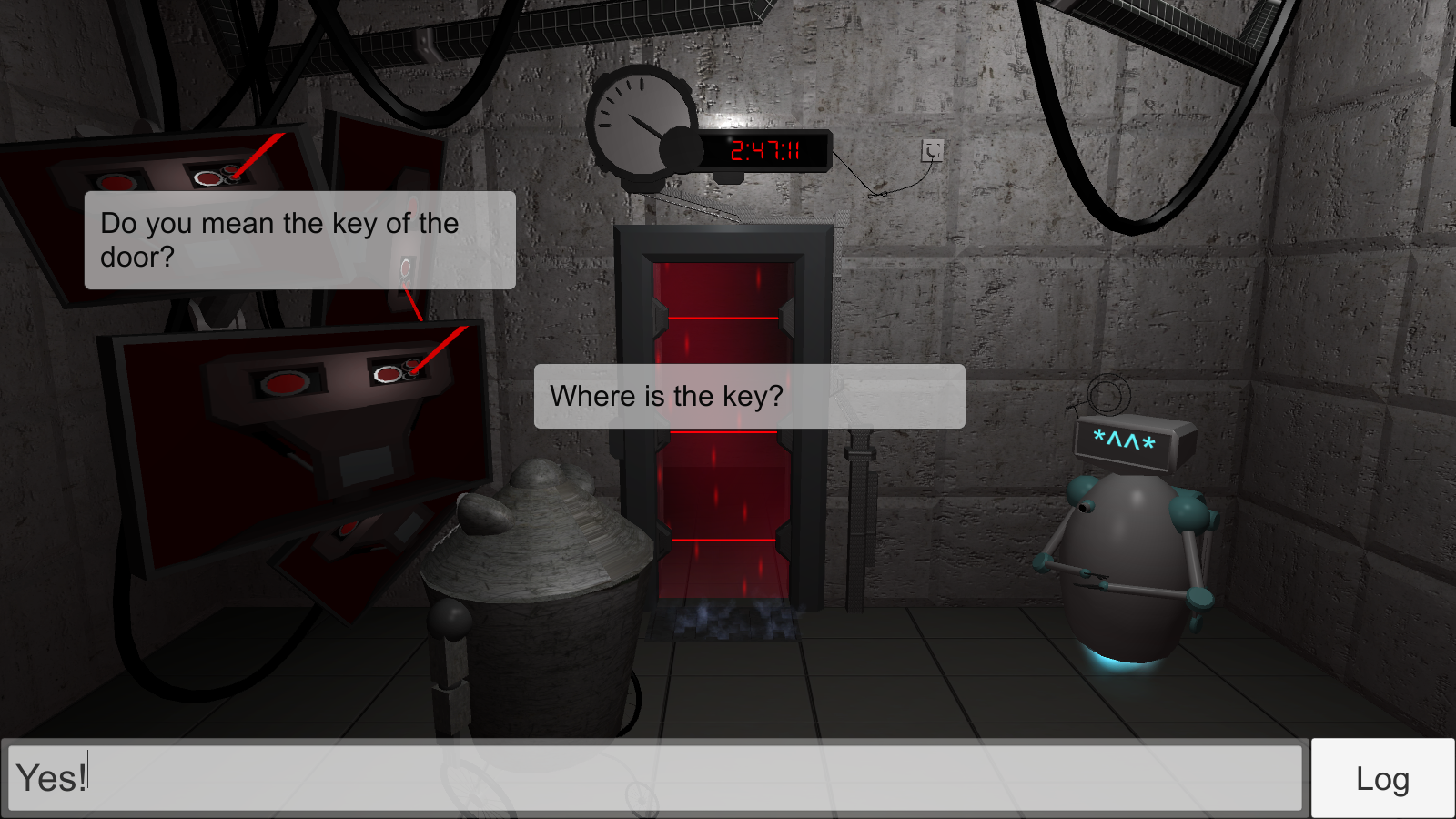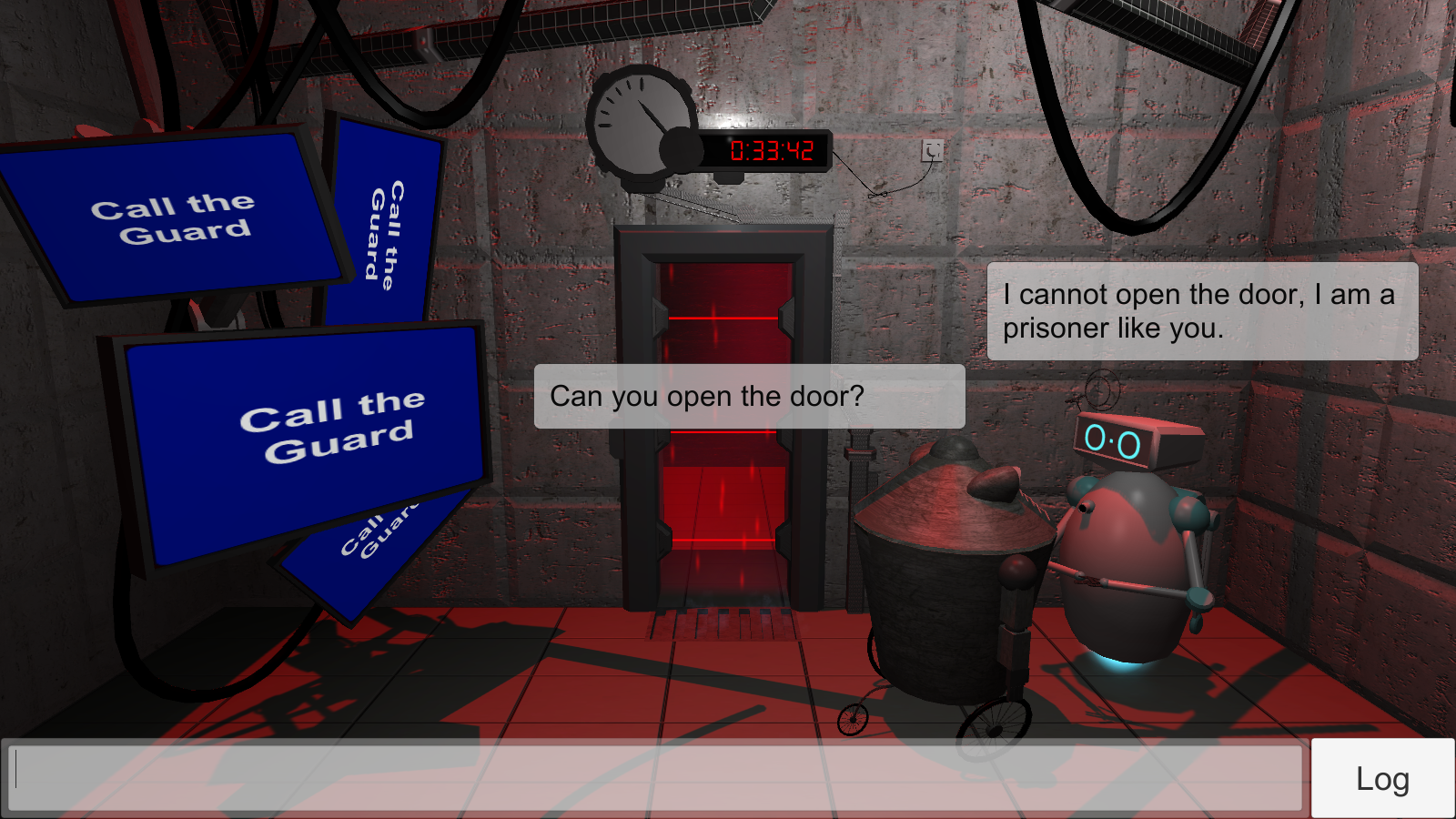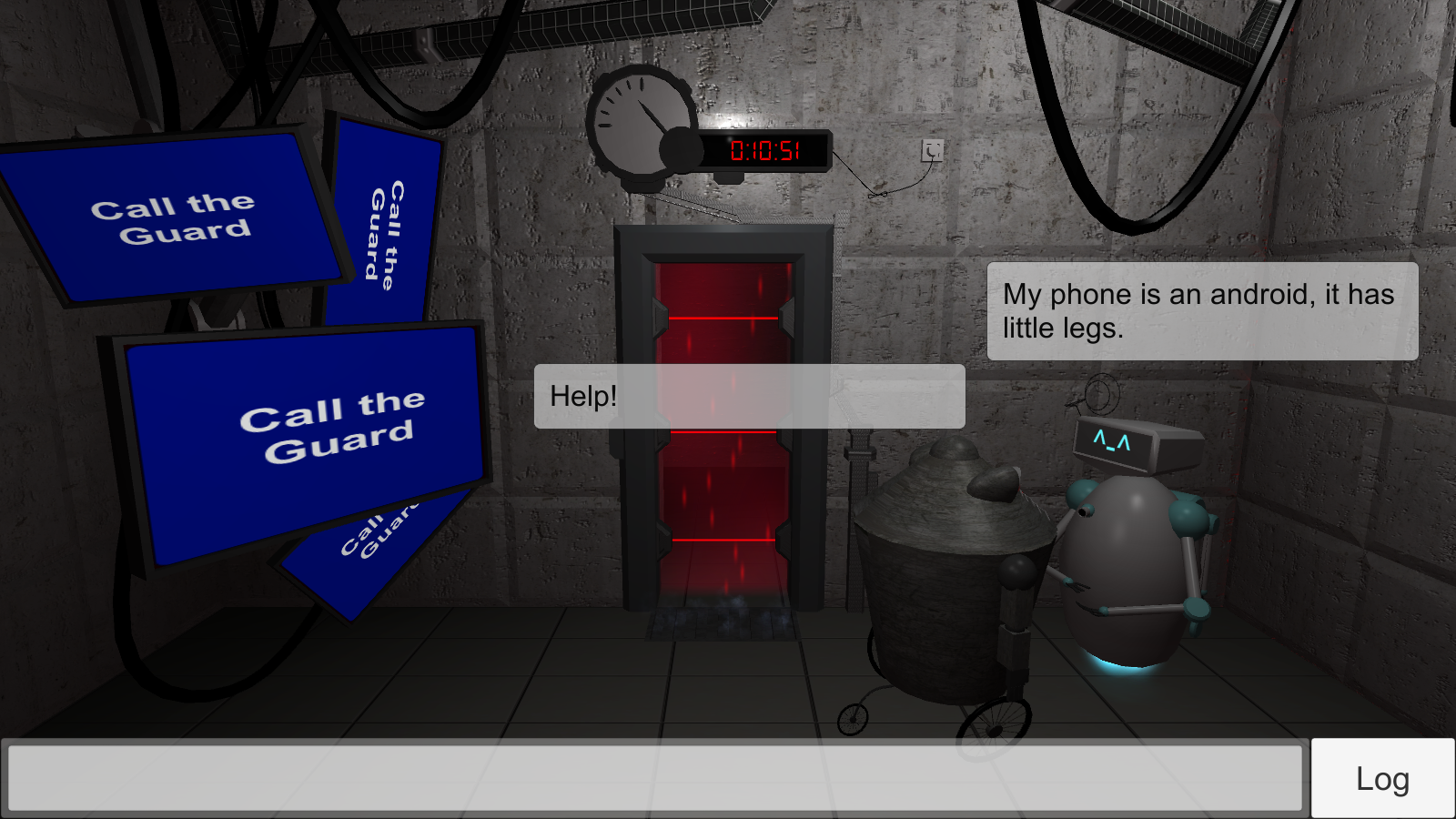This is Part Three of an ongoing series of post describing the design of Turing Adventure. You can try the game here.
- Part One: Motivation: Feel the adventure
- Part Two: How to push the adventure feeling further
- Part Three: Turing Adventure: Overview and design choices
- Part Four: AIML: The technology behind Turing Adventure
- Part Five: The psychology of human-chatbots interactions
- Part Six: Technical and design difficulties
Turing Adveture is a ten minutes long point and click adventure in which I tried to address the issues exposed above. We developed it for the Adventure Jam, in two weeks, so the game is short.
I propose a Universe in which there is a robot planet, called Turing Planet, inhabited by a mysterious race of robots that were in war against humans a hundred years ago. Those robots are completely isolated and don’t have any contact with humans, but would kill any unfortunate human being who happen to get close to their planet.
Naturally, the human race is worried about what robots are developing so secretly, and send spies, disguised as robots, to try to find out what they are up to. You are one of those spies, who unfortunately was caught accessing sensitive data. Robots, however, are not very sure whether you are human or not, so they have imprisoned you. This is where the game starts.
Turing Adventure is a more or less typical graphic adventure otherwise, but there is no dialog lines for the player to choose when interacting with others. Instead, you type what you want to say. That makes the player feel a closer relationship between her and the main character, since the words the latest says are her very own.
This is not like typing commands or trying basic conversations in old conversation adventures. When I say that you can type what you want to say, I mean it. You can question NPC’s about the quest at hand… Or you can chat with them about your job, your hobbies, your dreams… Whatever! They will respond!
This approach forces the player to stop, analyze the situation and, for the first time in graphic adventures, really think: what would I do, and what would I say, if I were actually there?
Talking to characters that can give you a reasonable conversation about any topic has the risk of inviting the player to try to have fun with the chatbot instead of playing true to her character. That’s why in the game, you have a timing factor to overcome. The countdown on an artifact that looks like a bomb, the music, the light… If you ask the robots about those elements, they will inform you in a casual way: You are dying in five minutes.
All is designed to give the player a feeling of urge and stress, so she won’t mess around and try to focus on the task at hand: escape the prison.
I expect all this elements to help the player feel a deeper connection with the main character, since they address the two problems I discussed above.
Moreover, players will empathize with non-playable characters more than usual, thanks to psychological known effects of human-machine interactions, like the Eliza Effect. It is proven that humans tend to feel empathy with machines that show some human qualities: whether it might be a humanoid body, a face or other medium to show emotions, or, in this case, the ability to talk. That opens a new dimension for non-playable characters in games, where they can show their personalities not only in their design, background, and a few dialog lines, but in whole conversations.
We are diving further in this topic in further posts.
Finally, although sometimes surprisingly clever, chatbots, even those that we are using for Turing Adventure, cannot talk as humans. That means that they have limitations, and some responses feel artificial, out of context, or out of place… if you expect to talk with a sentient being.
But you would forgive those weird answer if you were talking to a machine, like a personal assistant (e.g.: Siri, Cortana). That’s why Turing Adventure is set in a robot planet full of robots: When they’ll give you some unnatural response you’ll thing: Well, robots… and won’t feel it out of place. At this point, you may know how much I try to fight things that are out of place.
And, speaking about digital assistants, I expect them to get much more in fashion during the next couple of years. So I hope Turing Adventure has arrived at the right moment.





Designing Turing Adventure Part I: Motivation: Feel the adventure
[…] Part Three: Turing Adventure: Overview and design choices […]
Designing Turing Adventure Part Two: How to push the adventure feeling further
[…] Part Three: Turing Adventure: Overview and design choices […]
Designing Turing Adventure Part Four: AIML: The technology behind Turing Adventure
[…] Part Three: Turing Adventure: Overview and design choices […]
Good share, Ben. I’ve been pouring through DFW’s work recently, and run into his apparently inability to forgive himself for his mistakes, or his shortcomings. Rather, I think he was trying to reason his way out of them.Illustrates the importance of being able to forgive yourself. I think it’s the only way to truly stay *alive.*
3be9wj
najrpz
wmkrzf
yrev2h
efv6vs
u2oanv
mse6g3
b1yhpq
zktru1
ewttth
mlvpd5
pcm5cj
nr4rh4
if1cs3
p5oqse
0nu8ro
y2tr2v